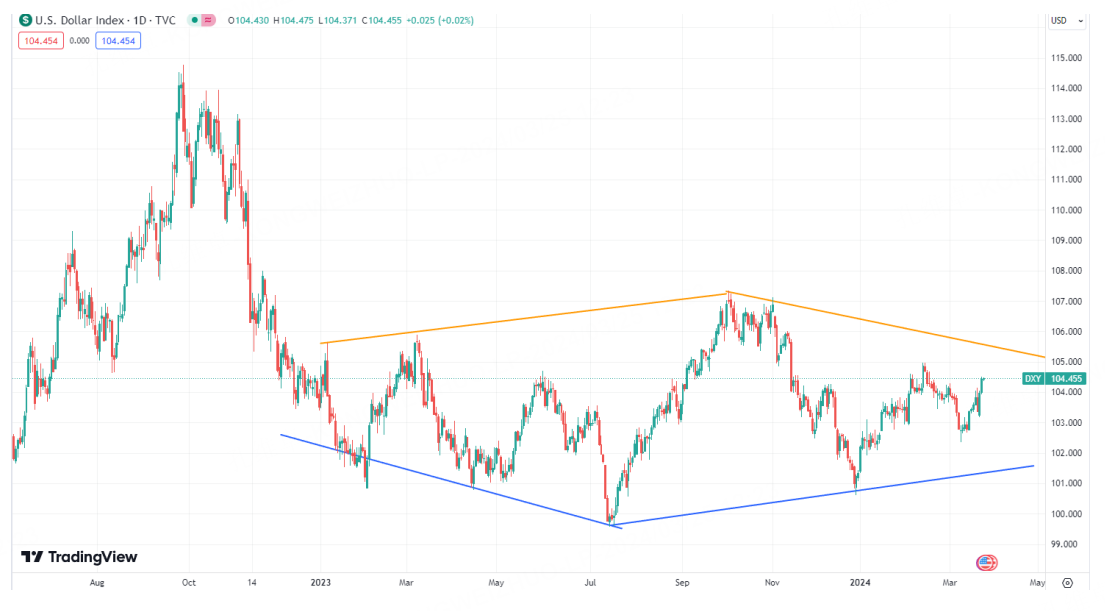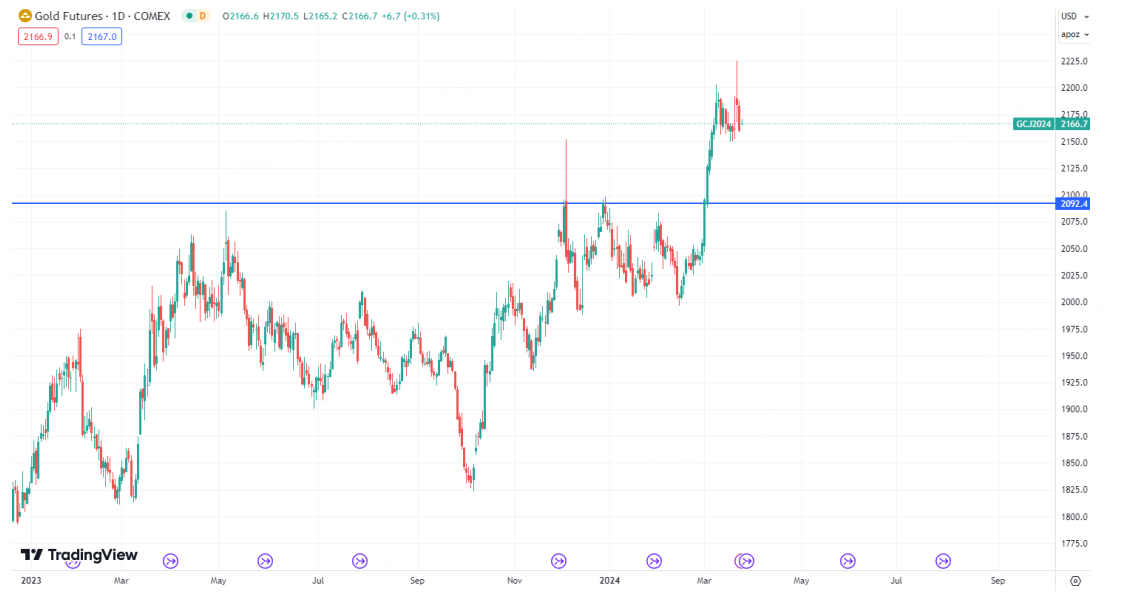How the Fed and geopolitical risks could impact markets
At the end of the month, the news from the terrorist attacks in Moscow shocked the market again, and also caused investors to worry about geopolitical progress. So will this event become a new driving factor and dominate the market in the second quarter?
My personal opinion is that the possibility is relatively low. Unless there are more actions and conflicts between the two sides, the market will digest this topic quickly.
First of all, from the market feedback, at first glance, there is a certain degree of risk aversion, but in fact, the assets themselves still show signs of "fighting", which shows that the event itself is not of high magnitude. For example, the US dollar did rebound and rise, but as we said before, the US Dollar Index is in the form of diamond, so it is not necessary to take the rise and fall within the range too seriously, and before the news appeared, the US dollar actually started its rebound.
However, the trend of gold, which is more famous as a safe haven, is even more obvious, and it does not rise but falls when it rises (the great reason for the rise still comes from the doves' Fed statement). Other traditional risk assets, such as crude oil and US stocks, are also tepid. Combined with Monday, there was no jump in the market. Therefore, on the whole, this single event could not drive the change of the market or trend.
Back to the market itself, compared with geopolitics, we think the trend of the yen may need more attention in the near future or in the future. As we all know, the Bank of Japan launched a rate hike operation before, which once made the market worry about whether the currency attribute of yen financing would change and bring domino effect.
However, at present, the yen still maintains a very good downward trend, and even on the day of BOJ resolution, it only symbolically resisted and then continued to fall. On the one hand, the market has anticipated rate hike's actions; On the other hand, some interpretations suggest that BOJ's operations are only to adjust long and short debts (financing costs), and do not really want to enter the tightening cycle.
Under the condition that the financing attribute of yen is maintained, it is difficult for the financial market to change substantially. However, if the situation changes one day, a substitute is needed, otherwise the disappearance of cheap costs will lead to the relative tightening of funds in the whole financial chain. The yuan was once considered a possible funding currency for the previous two years, but there are still some problems with this assumption, such as circulation and relatively high costs.
With the topic of the Federal Reserve's interest rate cut in June becoming a consensus, we expect that the existing main logic will be maintained for most of the second quarter. Periodic topics or small fights are hard to avoid, but the probability of big thunder and big fluctuations in major assets is limited. What really has a chance to change the market may have to wait until the US election near the end of the year.
$NQ100 Index Main Connection 2406 (NQmain) $$SP500 Index Main Connection 2406 (ESmain) $$Dow Jones Main Link 2406 (YMmain) $$Gold Main 2404 (GCmain) $$WTI Crude Oil Main Line 2405 (CLmain) $
Disclaimer: Investing carries risk. This is not financial advice. The above content should not be regarded as an offer, recommendation, or solicitation on acquiring or disposing of any financial products, any associated discussions, comments, or posts by author or other users should not be considered as such either. It is solely for general information purpose only, which does not consider your own investment objectives, financial situations or needs. TTM assumes no responsibility or warranty for the accuracy and completeness of the information, investors should do their own research and may seek professional advice before investing.



